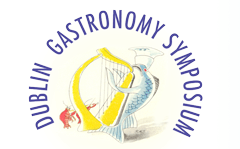Start Date
29-5-2024 10:15 AM
End Date
29-5-2024 10:30 AM
Description
Turkey stands out among the leading countries, particularly in the consumption of meat, milk, and dairy products. In terms of climate and physical conditions, it has the capacity to produce these commodities domestically. Additionally, it is situated in a geographically advantageous position rich in seafood resources. Turkish cuisine is further enriched by dishes and desserts prepared with dough. However, food preparation and cooking methods, equipment, storage conditions, presentation styles, consumption habits, spices, and sauces bear traces of various culinary cultures. Wars, natural disasters, political events, trade routes, and religious structures are among the factors that most significantly influence these differences. The migration routes of the Turkish people also play a fundamental role in shaping culinary culture. Moreover, traumatic events such as Turkey's cultural history and the redefinition of its borders give rise to the concept of synthesis cuisine. Despite changing borders, social memory has been influential in the formation of this country's culinary culture. The events and conditions that shape Turkish cuisine practices have been transmitted verbally and in writing, reaching the present day. This study examines traditional cooking methods and equipment that were practiced in Turkish cuisine until recently but are now largely forgotten or only practiced in rural areas. Additionally, it discusses other cultures that have influenced the shaping of Turkish culinary culture, along with their historical events.
Creative Commons License

This work is licensed under a Creative Commons Attribution-NonCommercial-Share Alike 4.0 International License.
DOI
https://doi.org/10.21427/76s5-7q25
Included in
Cultural History Commons, Food Studies Commons, Near Eastern Languages and Societies Commons, Other Anthropology Commons, Other Arts and Humanities Commons, Other Languages, Societies, and Cultures Commons, Social and Cultural Anthropology Commons, Sociology of Culture Commons
The Subconscious of Traditional Practices: Turkish Cuisine
Turkey stands out among the leading countries, particularly in the consumption of meat, milk, and dairy products. In terms of climate and physical conditions, it has the capacity to produce these commodities domestically. Additionally, it is situated in a geographically advantageous position rich in seafood resources. Turkish cuisine is further enriched by dishes and desserts prepared with dough. However, food preparation and cooking methods, equipment, storage conditions, presentation styles, consumption habits, spices, and sauces bear traces of various culinary cultures. Wars, natural disasters, political events, trade routes, and religious structures are among the factors that most significantly influence these differences. The migration routes of the Turkish people also play a fundamental role in shaping culinary culture. Moreover, traumatic events such as Turkey's cultural history and the redefinition of its borders give rise to the concept of synthesis cuisine. Despite changing borders, social memory has been influential in the formation of this country's culinary culture. The events and conditions that shape Turkish cuisine practices have been transmitted verbally and in writing, reaching the present day. This study examines traditional cooking methods and equipment that were practiced in Turkish cuisine until recently but are now largely forgotten or only practiced in rural areas. Additionally, it discusses other cultures that have influenced the shaping of Turkish culinary culture, along with their historical events.
